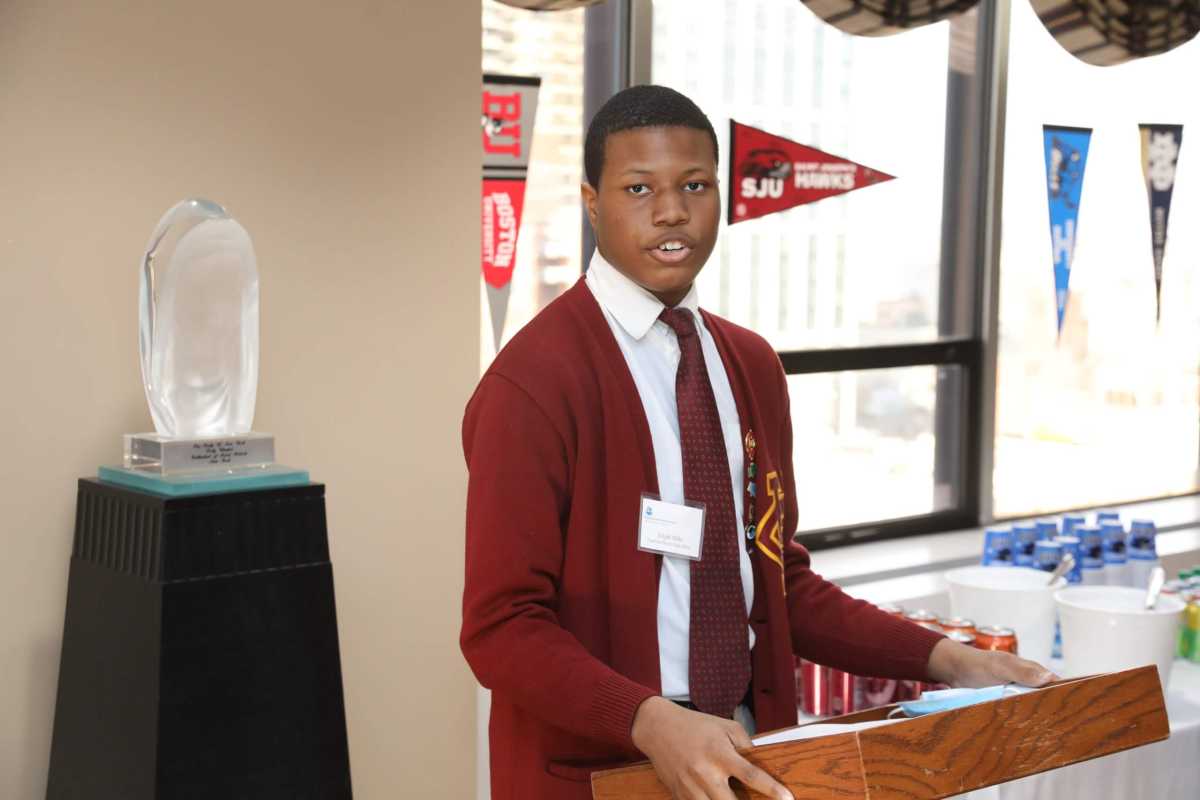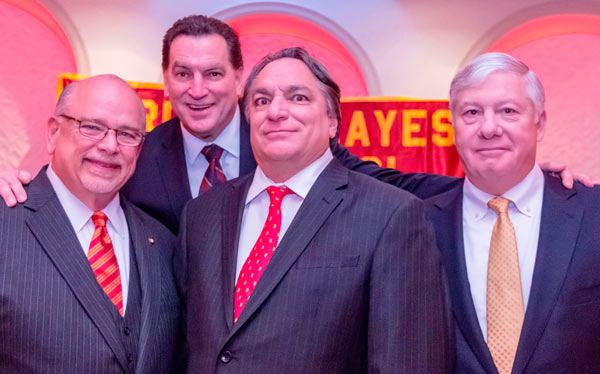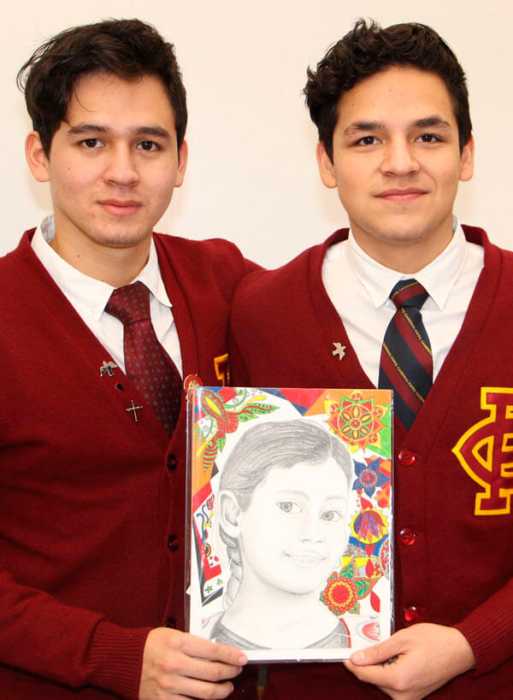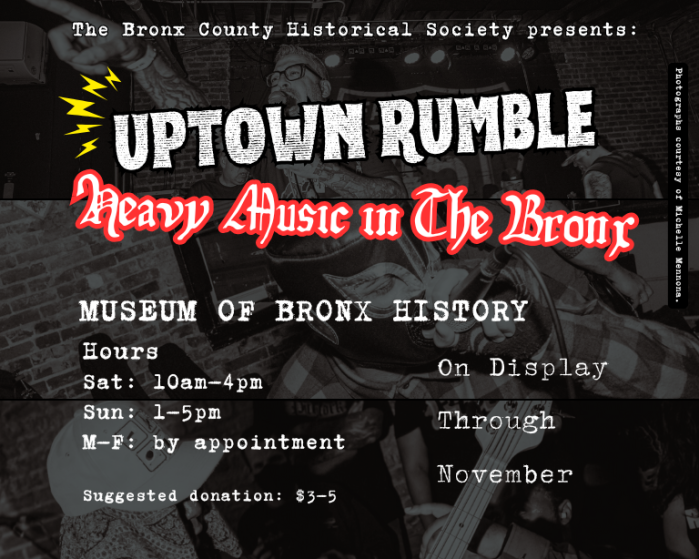The month of June offers a much-needed break for 17-year-old Elijah Mike. Mike, a Cardinal Hayes graduate and Bronx native, hasn’t been afforded many breaks in his life, battling sickle cell anemia since birth and having much of his scholastic and social life interrupted by frequent hospital trips to manage the blood disorder.
But sickle cell anemia — one of a group of inherited disorders known as sickle cell disease (SCD) which affects 70,000-100,000 Americans — did not hinder Mike’s infectious ambition as he graduated from the Concourse Village private Catholic high school with a 101.21 GPA, cemented himself as an honor student and is set to embark on a seven-year journey to become a physician in the Sophie Davis Biomedical Education Program at the CUNY School of Medicine.
Sickle cell anemia takes a toll on the body — particularly the red blood cells, changing them into stiff, sticky sickle cells that block blood flow — Mike said it also presents a mental challenge as well, as he had to best manage his condition with the rigor of high school and the social pressure that comes with growing up.
“My mother also has sickle cell so she gave me tools to assess how to best take care of my body, when to take breaks and when knowing how much stuff I can take and when to go to the hospital,” said Mike. “In the beginning of high school, I learned to start to manage it on my own and the biggest change in that process has been that I learned how to advocate for myself and for my care.”
Even when the COVID-19 pandemic interrupted a year and a half of Mike’s academic career, he said he learned how to grow from a self-admitted immature freshman to a bright-eyed college-bound student with a desire to become a doctor.
“I didn’t know I wanted to be a doctor until about sophomore year. Once I learned about what good caretakers were and what not-so-good caretakers were based on my experiences, it informed me on how I would want to provide care for others and serve my community,” Mike said. “What made me (want to become a doctor) was that I wanted to give back. I had been a patient, I knew what type of compassion I should have and know what it feels like to struggle, so I want to help those in similar situations.”
According to a National Library of Medicine study, students with sickle cell disease recorded lower grade-point averages and more absences compared to healthy participants due to management of their conditions. However, about 60% of students with SCD thought they performed better than peers during the COVID-19 pandemic when most of the educational activities were online, highlighting the importance of designing adaptive academic options to meet the needs of students dealing with illness that may interrupt in-person learning.
“Further, students with SCD acknowledged better performance with online education, an option that should be considered to improve their academic performance,” the study reads. “National studies on a larger population are required by health and education officials, and supportive online educational programs are warranted to enhance the academic performance of this population.”
Sickle cell disease is more common in certain ethnic groups, including: people of African descent, including African-Americans (among whom 1 in 12 carries a sickle cell gene), Hispanic-Americans from Central and South America, and people of Middle Eastern, Asian, Indian and Mediterranean descent.
Mike credits those who invested into his future — such as his Cardinal Hayes family and Steven Schwarzman, CEO and co-founder of the global investment firm Blackstone, and his wife, Christine, who have supported his Catholic school tuition through the Inner-City Scholarship Fund — for presenting him an opportunity and the patience to manage his sickle cell anemia and finish his high school career as an honor student.
Inner-City Scholarship Fund was founded in 1971 by the late Terence Cardinal Cooke and a group of prominent executives of many religious beliefs. Inner-City provides tuition assistance to more than 9,000 students (90% minority and 37% non-Catholic). Although 74% of inner-city Catholic school students live near or below the federal poverty level, 99% percent of high school seniors graduate and 98% are accepted to colleges and universities across the nation.
The key to unlocking student success, Mike believes, is an investment and understanding of what individuals students need and accommodating them when life events conflict with their academic journey.
“You don’t always know what a student is going through, or why he may be failing his classes,” he said. “They could have the drive to succeed but may have things going on at home or other issues in their lives. So it’s very important to spend time with students and make sure you invest in what they need and what they desire. Because if not, they may not get their chance to succeed and make the most of their situation.”
Reach Robbie Sequeira at rsequeira@schnepsmedia.com or (718) 260-4599. For more coverage, follow us on Twitter, Facebook and Instagram @bronxtimes






















